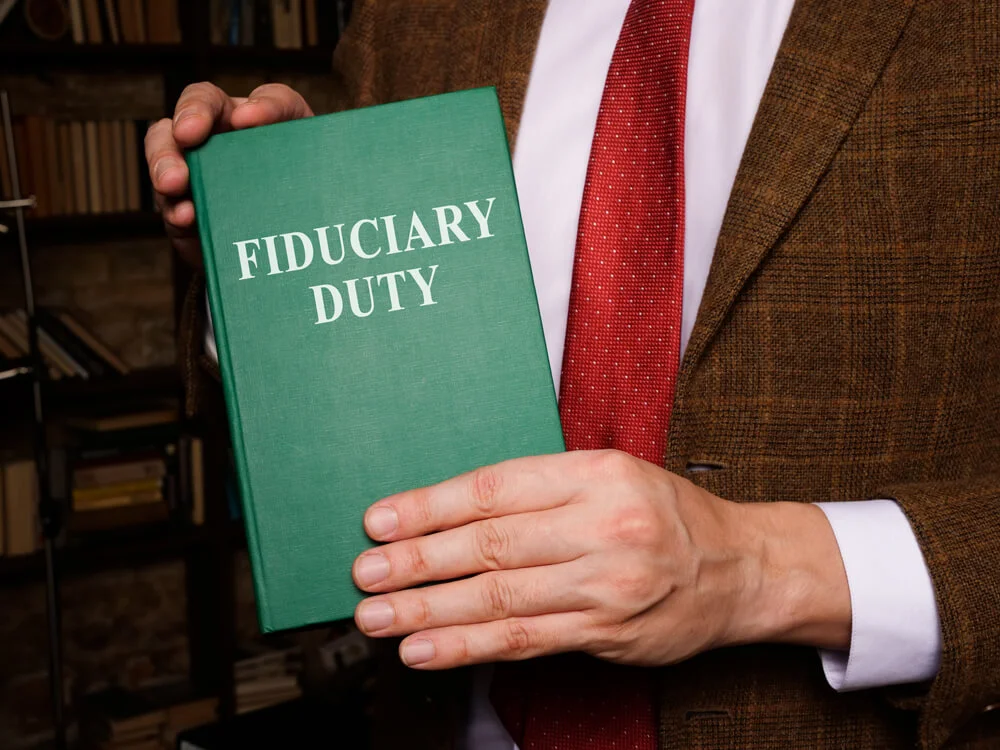To have fiduciary duty means to ensure the party you are serving can trust you. It sounds very simple, and that is true, but its simplicity is greatly overshadowed by its importance. One who acts as a fiduciary for another requires the actor to exercise a paramount level of selflessness. Although states may differ as to who they consider a fiduciary, there are at least five types of persons the law invariably always denominates as fiduciaries:
- Partners
- LLC Managers
- Corporate Directors
- Corporate Officers
- Controlling Stakeholders—not
- Stakeholder – Someone who has a legitimate interest in serving the company (selfless act) so that the company performs well overall; e.g., the CFO.
- Shareholder – Someone who has invested in the company for the sole reason of hopefully making a profit off of the company’s performance (selfish act).
A person’s fiduciary duties are bundled into three, sometimes four, different specific duties.
DUTY OF CARE
An officer or director’s duty of care is found in his duty to exercise good business judgment—thus using care—when making decisions for the business. Exercising proper duty of care looks like prudently considering business options and making a reasonable decision based on the information after proper due diligence has been applied to the situation. Furthermore, duty of care looks like acting in good faith, meaning that the officer genuinely believes the choice he is making for the company is a beneficial decision.
The standard for the duty of care is based on what a person “in a like position would reasonably do under similar circumstances.” This standard is a fairly subjective one. However, under tort law, the standard is reverted to the traditional, objective standard of “what would a reasonable person do?” The former, more flexible standard better protects a director accused of abusing his duty of care because it takes into consideration the fact-specific circumstances that influenced his business decision.
DUTY OF LOYALTY
This duty exemplifies the selflessness that defines a fiduciary duty as a whole. The duty of loyalty commands a director to act responsibly for the company at all times and to always act in the best interests of the company rather than oneself. Not only is the duty of loyalty expected when making decisions, but also when refraining or excluding oneself from making business decisions. For example, if a particular business deal is brought to the board of directors’ attention, any director who may have a conflict of interest with the deal is expected to recuse himself from weighing in on discussion. This is to protect both himself and the company because a conflict of interest for a director may tempt him to act in a way that would allow the director to personally gain from the business deal.
DUTY TO ACT LAWFULLY
This duty is fairly self-explanatory. Part of an officer’s fiduciary duty lies in the fact that he is expected to act in accordance with the law. Reasonably, one would not merit trust from the shareholders of the company if an officer did not follow the law when making his business decisions for the company.
DUTY TO ACT WITH/IN GOOD FAITH
This final duty is not always specifically recognized because it can be inherent to the first duty. As briefly described above, this duty represents an officer or director’s genuine belief and trust that his decision for the business will be beneficial to the business.
This blog’s purpose was to provide the basics of fiduciary duties, but like we said above, states differ in some ways regarding their expectations from fiduciaries. The rule of thumb is to “act in the best interests of the company and shareholders.” Don’t worry that you will suddenly be blindsided with criticism or a lawsuit if you are following that rule of thumb; but it’s still simply better to know more than the basics.
If you are in a position that requires fiduciary duties to your company and shareholders, it is important that you consult with competent legal counsel so that you are aware of the nuances this area of the law can sometimes contain.

